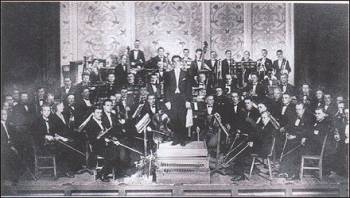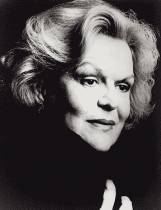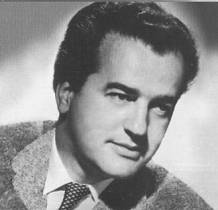 - одно из первых фото Караяна за дирижерским пультом (Оркестр города Ульм). 1931-32 год. - одно из первых фото Караяна за дирижерским пультом (Оркестр города Ульм). 1931-32 год.
Информация о Г. фон Караяне: www.karajan.org
Norman Scott (1921 – September 22, 1968) was an American operatic bass. He had a long and fruitful association with the Metropolitan Opera in New York City from 1951 up until his death seventeen years later. His repertoire at the Met included well over 50 roles, and he gave a total of 927 performances at the house during his career. A talented actor with an excellent sense of comic timing, Scott excelled in playing secondary characters that were often humorous in nature. Although initially a comprimario singer, Scott was eventually given opportunities to tackle larger leading roles at the Met, and he spent much of his career at that house going back and forth between leading and secondary roles. Although Scott spent the majority of his career at the Met, he did occassionally perform with other opera companies both in the United States and abroad. A major personal triumph came in 1953 when he sang the title role in Béla Bartók's Bluebeard's Castle at the Holland Festival. 
Mary Violet Leontyne Price (born February 10, 1927, in Laurel, Mississippi in the United States) is an American operatic soprano. She was best known for the title role of Verdi's Aida. Born in the segregated Deep South, she rose to international fame during a period of racial change in the 1950s and 60s, and was the first African-American to become a leading prima donna at the Metropolitan Opera. Price's voice was noted for its brilliant upper register, "smoky" middle and lower registers, flowing phrasing, and wide dynamic range. A lirico spinto (Italian for "pushed lyric", or middleweight), she was well suited to the roles of Giuseppe Verdi and Giacomo Puccini, as well as several in operas by Wolfgang Amadeus Mozart. Her voice ranged from A flat below Middle C to the E above High C. (She said she reached high Fs "in the shower.") After her retirement from the opera stage in 1985, she gave recitals for another dozen years. Among her many honors are the Presidential Medal of Freedom (1964), the Kennedy Center Honors (1980), the National Medal of Arts (1985), numerous honorary degrees, and nineteen Grammy Awards, including a special Lifetime Achievement Award in 1989, more than any other classical singer. In October 2008, she was one of the recipients of the first Opera Honors given by the National Endowment for the Arts.

Maureen Forrester (born July 25, 1930) is a Canadian operatic contralto. She was born as Maureen Kathleen Stewart Forrester in Montreal, Quebec as one of four children to Thomas Forrester and May Arnold, and grew up in a poor section of east Montreal. At age 13, she dropped out of school to help support the family, working as a secretary at Bell Telephone. Forrester was able to pay for voice lessons with Sally Martin, Frank Rowe, and baritone Bernard Diamant. She gave her debut recital at the local YWCA in 1953. Her accompanist was John Newmark, and this was the start of a life-long collaboration. She made her concert debut in Beethoven's Ninth Symphony with the Montreal Symphony Orchestra under Otto Klemperer. She toured extensively in Canada and Europe with Jeunesses Musicales. She made her New York City debut in Town Hall in 1956. Bruno Walter invited her to sing for him; he was looking for the right contralto for a performance and recording of the Mahler Symphony No. 2 "Resurrection" This was the start of a warm relationship with great rapport. Walter had been a student of Mahler, and he trained Forrester in interpretation of his works. She performed at Walter's farewell performances with the New York Philharmonic in 1957. Forrester became known for her performances of Mahler and for her great stamina, often giving up to 120 performances a year while raising the five children she had with her longtime husband, conductor Eugene Kash. She was considered to have superb German diction and great dramatic sense, which made her a highly-regarded performer of Lieder. She also performed regularly in concert and opera. She sang at the Metropolitan Opera in New York in 1975 in Das Rheingold, Siegfried, and Un ballo in maschera. Forrester also provided the voice of the Bianca Castafiore character in the television series The Adventures of Tintin. She has been a champion of Canadian composers, regularly scheduling their works in her programs, especially when she toured abroad. From 1983 to 1988 she served as Chair of the Canada Council. 
Léopold Simoneau (May 3, 1916 - August 24, 2006) was a French-Canadian lyric tenor, one of the outstanding Mozarteans of his time. Simoneau was born in St. Flavien, Québec, and started his vocal studies in Québec City at Levis College and Université Laval. While studying in Montreal with Salvator Issaurel, he made his professional debut with Les Variétés Lyriques in Montréal in 1941. He then left for New York City for complementary studies with Paul Althouse. In 1946 he appeared at the New York City Center as Lionel in Martha. That same year he married French-Canadian soprano Pierrette Alarie. Together they left for France where Simoneau's career really took off. He made his debut in 1949 at the Opéra-Comique of Paris as Vincent in Gounod's opera Mireille and at the Paris Opera as Tamino in Die Zauberflöte. He made his debut at the Aix-en-Provence Festival in 1950 singing Ottavio in Don Giovanni and Ferrando in Così fan tutte. The following year, 1951, he made his debut at the Glyndebourne Festival as Idamante in Idomeneo. His performances at these two festivals quickly established him as the outstanding Mozartian tenor of his time. He was invited to sing at the Salzburg Festival and the Edinburgh Festival, at the Vienna State Opera and at La Scala in Milan, while pursuing his career in France, in roles such as Nadir in Les pêcheurs de perles, Gérald in Lakmé. He took part in the revival of opera such as Rameau's Les Indes galantes and Orphée in the French version for tenor of Gluck's Orfeo ed Euridice. In France he was frequently singing opposite his wife, who was a light lyric coloratura soprano excelling in the same repertoire as her husband. In the 1950s he made several famous recordings, including one of the Mozart Requiem with Bruno Walter conducting. He also participated in two celebrated recordings with Philips Records, George Bizet's Les pêcheurs de perles conducted by Jean Fournet, and Christoph Willibald Gluck's Orphée et Euridyce conducted by Hans Rosbaud, in which he gave what some critics feel are the definitive performances of the roles of Nadir and Orphée. Simoneau also sang the role of Belmonte in Sir Thomas Beecham's recording of Mozart's The Abduction from the Seraglio, and the role of Ferrando in Mozart's Così fan tutte opposite Elisabeth Schwarzkopf, Nan Merriman, Rolando Panerai, Lisa Otto, Sesto Bruscantini, conducted by Herbert von Karajan, both considered classics. Simoneau made his debut at the Lyric Opera of Chicago in 1954, he sang there until 1961, notably in La traviata opposite Maria Callas. His only Metropolitan Opera appearances were five performances of Don Ottavio during the 1963-64 season. Simoneau's final appearance was in Handel's Messiah in Montréal on November 24, 1970. He was made an Officer of the Order of Canada in 1971, he was promoted to Companion in 1995. Simoneau was also made a Knight of the National Order of Quebec in 1997. After retiring, Simoneau and his wife became active as teachers, notably at the Banff Centre. They also founded the Canada Piccola Opera in Victoria, BC in 1982. He and his wife had two daughters, Isabelle and Chantal.
Ludwig van Beethoven
Symphony no 1 in C major, Op. 21
Symphony no 9 in D minor, Op. 125 "Choral"
Leontyne Price, soprano
Maureen Forrester, contralto
Leopold Simoneau, tenor
Norman Scott, bass
Westminster Choir
New York Philharmonic Orchestra Conductor: Herbert von Karajan
Rec.: 22.11.1958 | 
